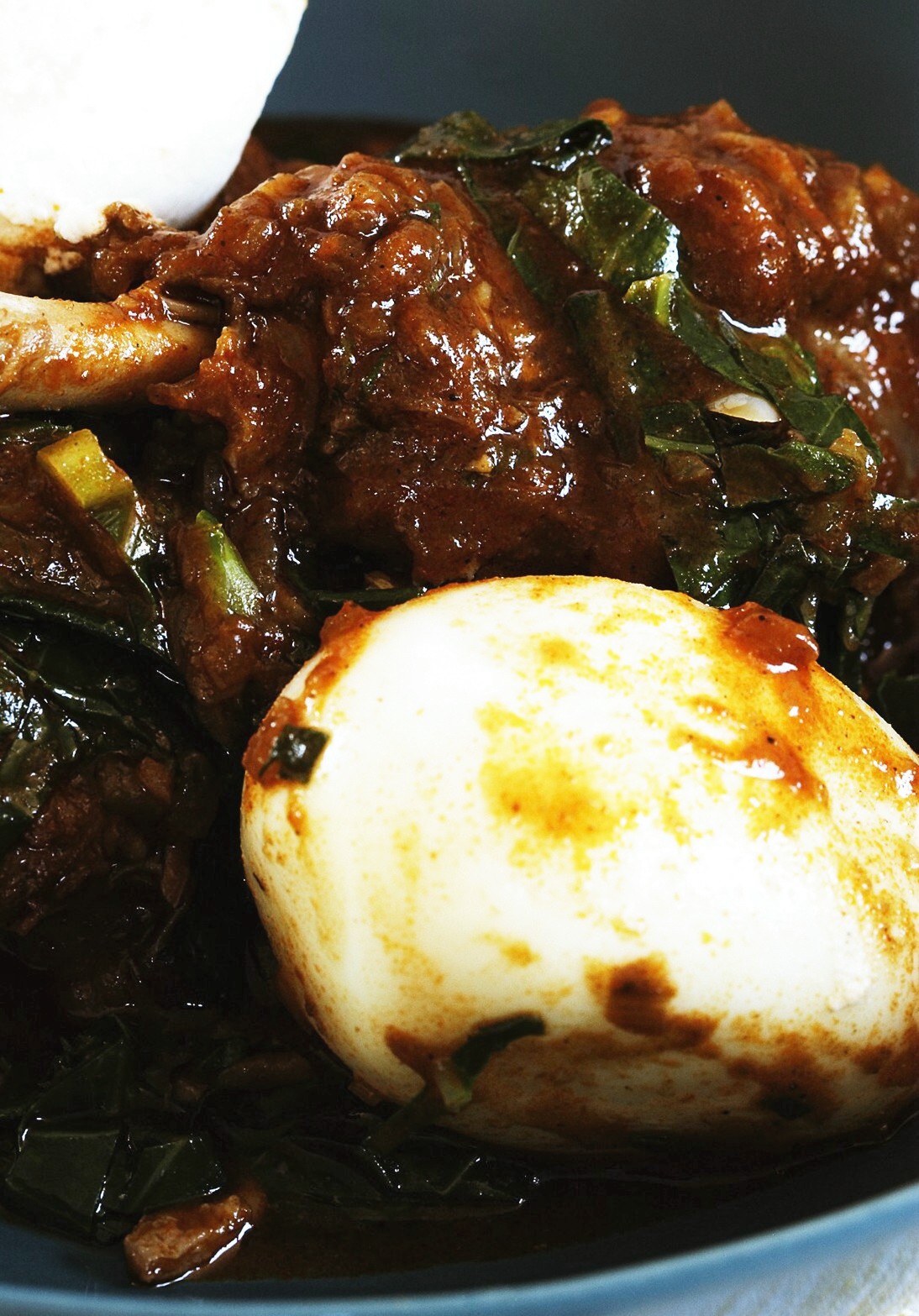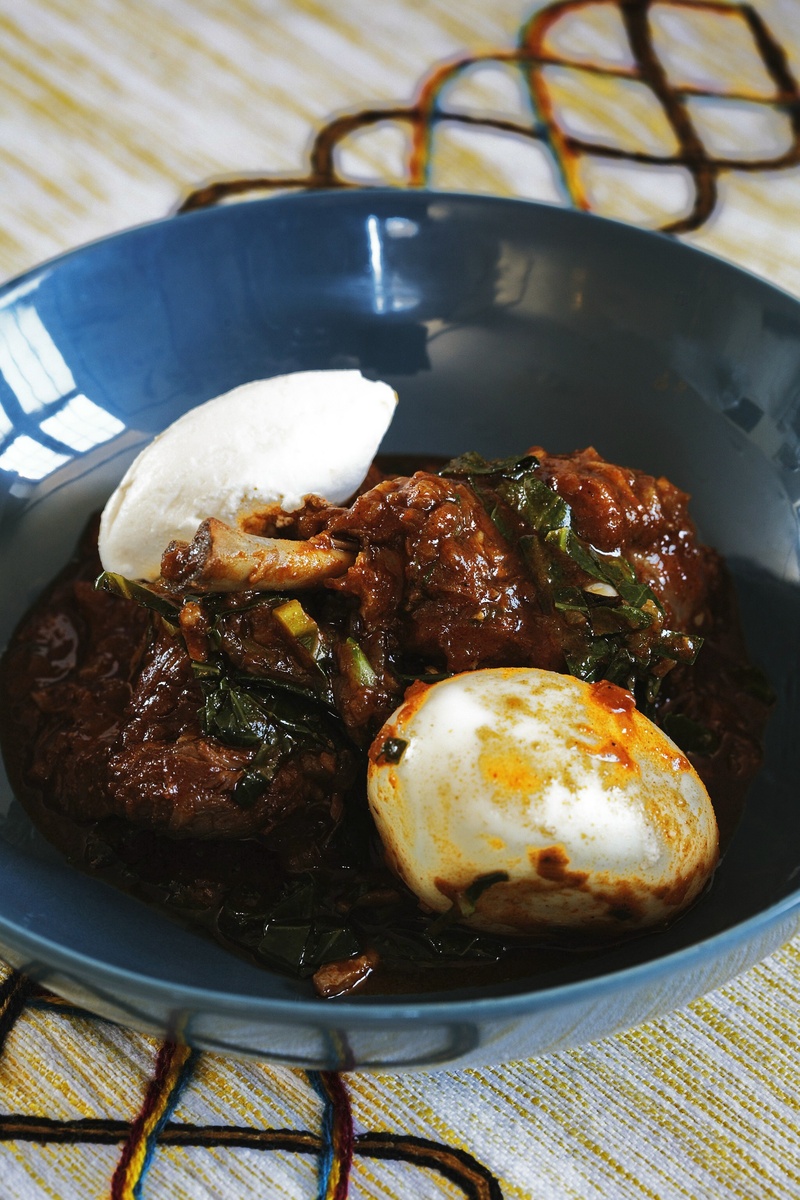Chef Marcus Samuelsson
 As you have come to know, we are big fans of Chef Marcus Samuelsson. He has been a fan, supporter and friend to GGM since we started this and we thank him for again allowing us to share his wonderful cuisine with you. His cookbooks seem to always be out at our house, as the dishes he presents are unique and bursting with flavor. His new cookbook, The New American Table, is a look at American Cuisine through ethnic eyes. You can read Elaine's review of it on Kitchen Rap, and also check out the in-depth Up Close & Personal we did with him back in 2008. Enjoy!
As you have come to know, we are big fans of Chef Marcus Samuelsson. He has been a fan, supporter and friend to GGM since we started this and we thank him for again allowing us to share his wonderful cuisine with you. His cookbooks seem to always be out at our house, as the dishes he presents are unique and bursting with flavor. His new cookbook, The New American Table, is a look at American Cuisine through ethnic eyes. You can read Elaine's review of it on Kitchen Rap, and also check out the in-depth Up Close & Personal we did with him back in 2008. Enjoy!

"I’ve always said that in America—where you have access to the highest quality ingredients and great cooking supplies—you can often make ethnic food that actually tastes better than it does in its native country. Doro we’t, the spicy chicken stew that is the national dish of Ethiopia, proves my point. My wife, Maya, has mastered the dish, which her mom and sisters taught her to make, and she prepares it whenever we have guests. She treks across Central Park to her favorite Puerto Rican butcher on East 111th Street to pick out organic chicken legs. Back home, she removes the skin and rinses the legs with lemon water, following every step of the recipe meticulously. Soon, our whole house is filled with the aroma of doro we’t. For a traditional Ethiopian meal, serve doro we’t with injera bread, or give it an international flair by accompanying it with couscous or steamed rice. Whichever way, it’s a wonderful dish you’ll find yourself coming back to again and again "(see Tip).
makes 4 servings Ingredients  Doro We’t
Doro We’t
¼ cup olive oil
5 garlic cloves, minced
5 red onions, finely chopped
One 2-inch piece ginger, peeled and minced
1 tablespoon tomato paste
3 tablespoons berbere
8 skinless chicken legs
1 teaspoon ground cardamom
1 tablespoon salt
3 tablespoons Spiced Butter (see below) or unsalted butter
3 cups chicken stock
1 cup dry red wine
1 pound collard greens finely shredded
4 peeled hard-boiled eggs
½ cup cottage cheese, 4% milk fat
1 Heat the olive oil in a Dutch oven over low heat. Add the garlic, onions, and ginger and cook, stirring occasionally, until softened, about 30 minutes. Add the tomato paste and berbere and cook for another 15 minutes.
2 Season the chicken legs with the cardamom and salt. Add the chicken to the sauce, along with the spiced butter, chicken stock, and wine. Bring to a simmer and cook until the chicken is cooked through, about 1 hour.
3 In a separate pot, bring salted water to a boil. Add the collard greens and cook until tender, about 15 minutes. Remove the greens with a slotted spoon and transfer to the chicken stew. Serve with the hard-boiled eggs and cottage cheese on the side.
You can make a double batch of doro we’t and freeze the extra. Like any good stew, it will reheat beautifully. I also make extra sauce and toss it with cooked pasta for a quick weekday meal.
Spiced Butter
makes 1½ cups
If there’s one thing that Americans can take away from the cooking of my native Ethiopia, it’s nit’ir qibe, the clarified spiced butter that serves as the basis of most Ethiopian food. I keep a supply in the freezer to add instant flavor and aroma to roasted vegetables, fish, or meat. Because the solids are removed from clarified butter, it won’t burn as easily as regular butter, so you can cook with it over really high heat.
 Ingedients
Ingedients
1 pound unsalted butter
1 red onion, coarsely chopped
3 garlic cloves, minced
One 3-inch piece ginger, peeled and finely chopped
1 teaspoon fenugreek seeds
1 teaspoon ground cumin
1 teaspoon cardamom seeds
1 teaspoon dried oregano
½ teaspoon ground turmeric
4 thyme sprigs
Method
1. Melt the butter in a medium saucepan over low heat, stirring occasionally. As foam rises to the top, skim it off and discard it. Continue cooking, without letting the butter brown, until no more foam appears. Add the onion, garlic, ginger, fenugreek seeds, cumin, cardamom seeds, oregano, turmeric, and thyme and continue cooking for 15 minutes, stirring occasionally.
2. Remove from the heat and let stand until the spices settle, about 40 minutes. Strain through a fine-mesh sieve before using.
Can be stored in an airtight container in the refrigerator for up to 3 weeks.



